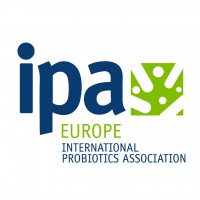Probiotics in Europe - How can better regulation strengthen the knowledge of probiotics for consumer health?
24-04-2023
.jpg)
WATCH THE RECORDING HERE
Climate change and evolving trends in consumer behaviour have redirected the EU´s attention toward new ways of producing and consuming food to improve its safety, quality and sustainability. The EU’s Farm to Fork strategy aims at providing those fundamental changes through the use of innovation and technologies and by promoting new production models.
In this perspective, microorganisms can play an important role. Probiotics are live microorganisms that can be formulated into many different types of products, including foods and dietary supplements. Scientific evidence points to the positive functions that microbes perform as probiotics for a sustainable and healthy diet, while contributing to a low environmental impact. It is recognised that diet can modify the intestinal microbiome, which in turn has a positive impact on overall health.
Probiotics have received the attention of regulatory authorities worldwide with an interest in protecting consumers from misleading claims and information. However, the EU is in the unique situation where consumers cannot be informed about the presence of probiotics as a category of ingredients in food and food supplements. The Regulation 1924/2006 does not make any reference to probiotics. To address this shortcoming, the Commission issued a guidance on the implementation of Regulation 1924/2006 by stating that a product that “contains probiotics/prebiotics” should be considered a health claim ‘per se’.
Despite the current regulatory restrictions, the term ‘probiotic’ is used widely in the media, on many products sold online, on cosmetics and cleaning products. A large variety of probiotic products are available in several regions of the world and European consumers can purchase these products on-line.
The lack of a harmonised regulatory framework and clarity on the definition of the term “probiotics” at EU level has brought individual Member States to adopt national guidelines/rules. National guidelines have already been issued by Italy, Spain, France, the Czech Republic and Bulgaria, and many European countries are allowing the use of the term ‘probiotic’ on labels and in communication. Such a situation can create uncertainty for companies and fragmentation of the Single Market, as well as confusion for consumers.
In the recent recommendation of the Fit4Future Platform (F4F) that delivered the opinions to the Commission on simplification and unnecessary cost reductions, the platform acknowledged the potential of Biosolutions and endorsed some recommendations. Notably, it suggested to improve the harmonisation of the use of the term ‘probiotics’ in the context of health claims across EU Member States to provide clarity for industry and consumers, and to develop industry guidelines for food cultures as food ingredients.
Join this EURACTIV Virtual Conference to discuss the probiotics sector, its challenges and opportunities, and how increased clarity can benefit European industry while providing better information and transparency for consumers. Questions to be addressed include:
- By filling the regulatory gaps to scale-up innovation capacity, what further growth can the sector achieve?
- What are the consumer expectations regarding the use of probiotics and how can these be met?
- How can the European Commission facilitate a dialogue amongst stakeholders and Member States regarding the use of the word “probiotic” and find a way forward?
- Can a harmonised approach on probiotics be reached at EU level to ensure the correct functioning of the European Single Market?
- What role does research and innovation play?
WATCH THE RECORDING HERE
Supported by:
Location
Online
Panellists
Lasse Hamilton Heidemann
Member of the Fit4Future Platform and Member of the Danish Chamber of Commerce
Danai Spentzou
Representative of the office of MEP Stelios Kympouropoulos, European Parliament
Naomi Venlet
Scientific Project Manager, ILSI Europe
Esben Laulund
Chair, International Probiotics Association Europe
Moderator
Mariam Zaidi
EURACTIV
Schedule
14:00 – 14:05 Welcome
14:05 – 14:20 Panellist statements
14:20 – 15:10 Discussion and Q&A
15:10 – 15:15 Closing statements
Contact
Ana Alexandrescu
ana.alexandrescu@euractiv.com





